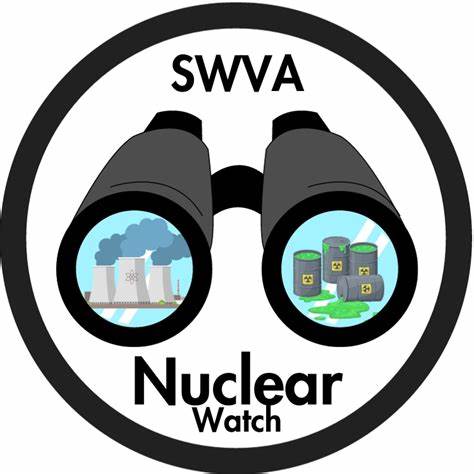Part 1 of 2 Parts
A long-held stereotype of Southern Appalachians is that they are fatalistic, having a sense of being powerless to change their life circumstances. In a 1965 publication, “Yesterday’s People: Life in Contemporary Appalachia,” described the people. In the coalfields of Southwest Virginia today, there is organized effort among the people to counter this prejudice.
Governor Youngkin arrived unannounced at a former coal mine site near Norton in October 2022. He appeared at an invitation-only press conference to say that his “moonshot” was to put the nation’s first small modular nuclear reactor (SMR) in Southwest Virginia to revitalize the waning coal-based economy. This highly-publicized media event included statements from the region’s legislative representatives, local officials and individuals with special interests in promoting nuclear energy. They all declared the safety of these as-yet-undeveloped SMRs.
For more than a year there were no public meetings about SMRs, only legislative bills to support them as well as a site feasibility study. This study alarmingly identified seven “ideal” locations for the nuclear reactors near neighborhoods, schools, businesses, water reservoirs and even the Red Onion prison with the caveat that an “evacuation plan” would be required. In response to local environmental justice groups calling for transparency, officials said repeatedly that it was too early for public involvement. The officials said their concerns were premature, while avoiding discussing the dangers of creating and storing nuclear radioactive waste on site and the safety and health risks to local communities.
This past week, Governor Youngkin returned to Southwest Virginia. Once again, he did not announce his itinerary in advance. He began his day holding an invitation-only meeting at UVA’s College at Wise, and this time barred the press. As he left his public meeting in Abingdon at the end of the day, he responded to a reporter’s question about his plan to put SMRs in the coalfields. His stunning remark was that “The state’s first small nuclear reactor likely won’t be built in Southwest Virginia after all.”
Southwest Virginia (SWVA) Nuclear Watch is a burgeoning grassroots movement in opposition to siting SMRs here. During Youngkin’s trip to Wise County, local activists protested with yard signs and billboards that said, “Don’t NUKE SWVA.” Over the past seventeen months concerned citizens have issued press releases, distributed a brochure, placed classified ads and held the first public SMR Town Hall meeting in Norton, followed by community conversations in Clintwood, Pound, Wise, Norton, Coeburn, St. Paul, Big Stone Gap, Stickleyville and Dungannon. The purpose of these activities was to raise public awareness. One local merchant said, “90% of the customers coming into my store know little or nothing about what is going on.”
The activists have done their homework, unlike Delegate Kilgore who is reported saying he knew SMRs were clean, safe and reliable because a panel of experts told him they were. No SMR has been built or operated in the United States to validate these claims. NuScale is the only company given a design permit by the federal Nuclear Regulatory Commission. They went so far over cost, after billions of federal dollars in subsidies, that rural communities in Utah pulled out of an agreement to acquire electricity from the SMRs in ten years because of the high cost they were sure to incur. Utilitydive.com reported that “the financial challenges and cost trends witnessed in that (Utah) case will afflict any SMR project.” NuScale belongs to the Virginia Nuclear Energy Consortium.
Please read Part 2 next
